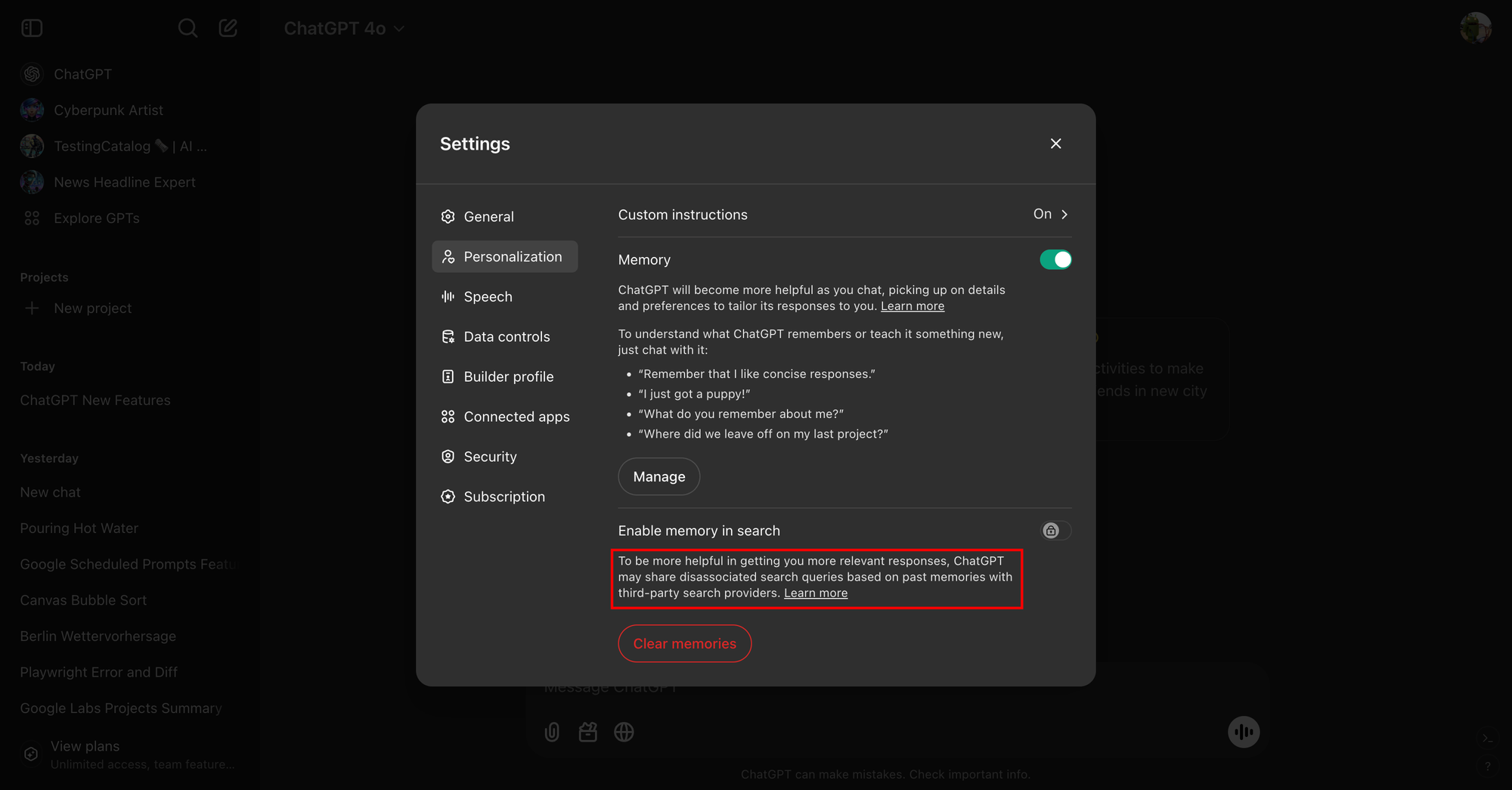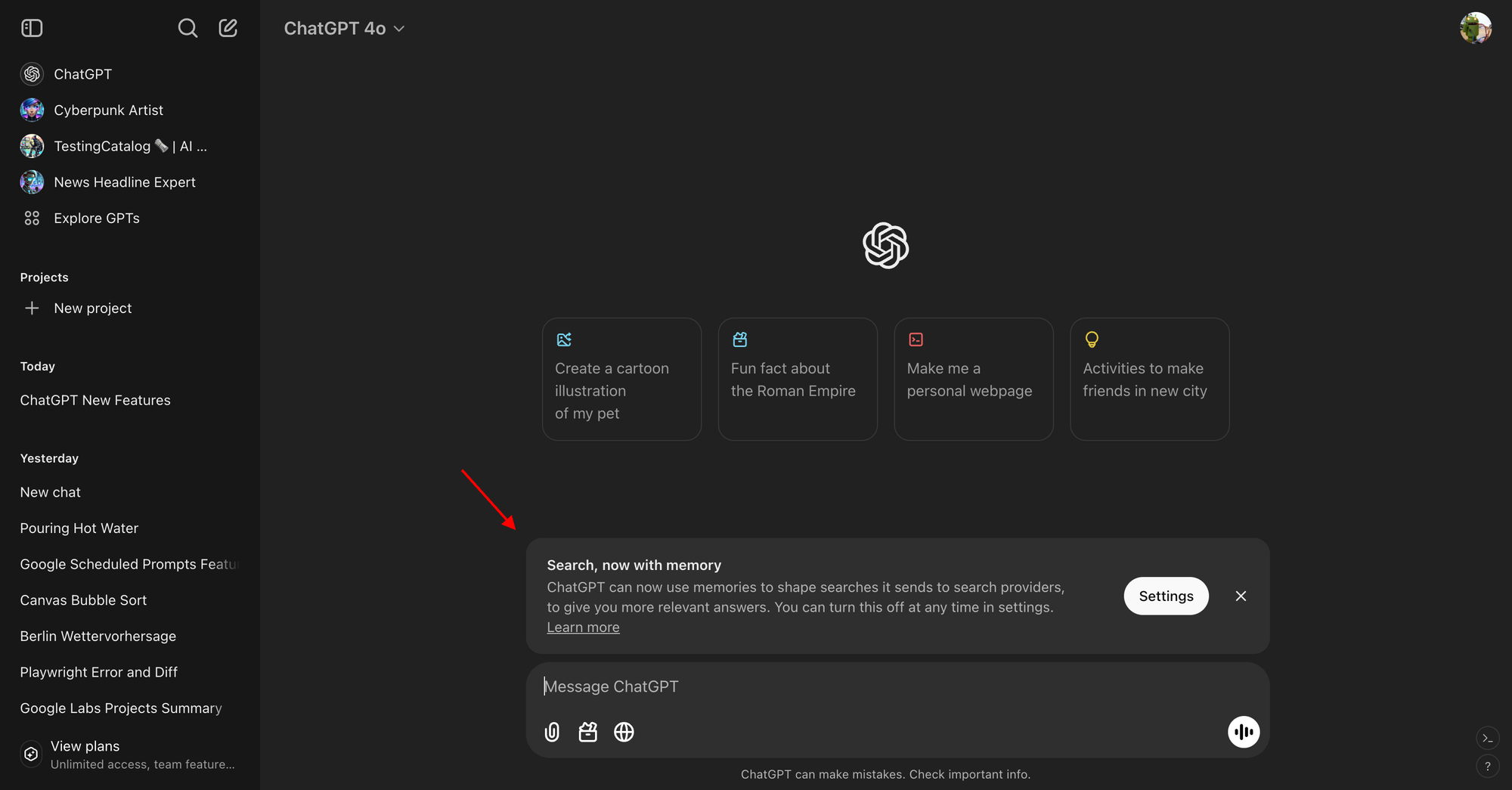OpenAI is reportedly planning to enhance the personalization of search results in ChatGPT by utilizing a feature called "memories." This feature allows ChatGPT to retain information from past interactions, which can be used to tailor responses more closely to individual user preferences and contexts. The concept of "memories" in this context functions similarly to cookies, as they store user-specific data to improve service delivery. However, unlike traditional cookies, these memories are integrated into the AI's conversational capabilities, enabling it to remember user details and preferences across sessions.
The memory feature is part of OpenAI's broader strategy to make ChatGPT a more effective and personalized assistant. It allows users to instruct the AI on what to remember or forget, providing a degree of control over the data retained. This personalization could potentially extend to search functionalities, where the AI might recall previous queries or user interests to deliver more relevant search results.

The introduction of this feature raises questions about its implications for advertising. Personalized search results could become a valuable tool for targeted advertising, although there is no explicit confirmation that this will be a prerequisite for ads at this stage. The feature is expected to roll out soon, possibly within the next week, although specific dates have not been confirmed.
OpenAI's move towards integrating memories into ChatGPT aligns with its goal of creating more powerful and interactive AI agents that can perform complex tasks and provide highly contextualized responses. This development is part of OpenAI's ongoing efforts to challenge established players in the search engine market by offering a more personalized and conversational search experience.






